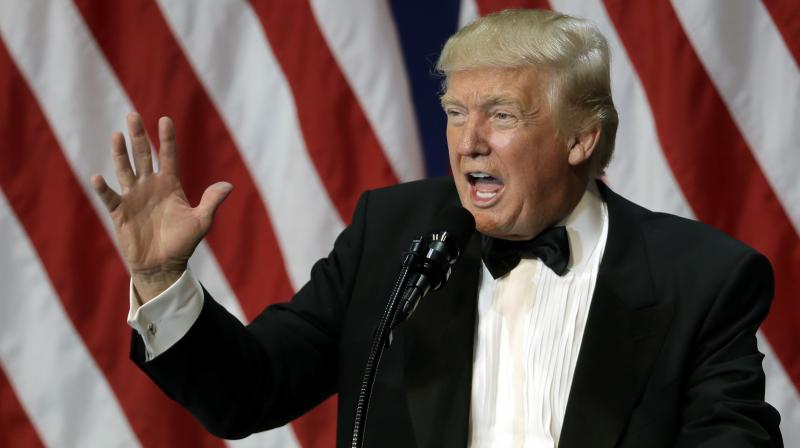Prez Trump yet to be revealed as a leader

Donald J. Trump, who revels in his self-portrait as the ultimate outsider and made a virtue of this through the extremely bitter months-long presidential campaign, was inaugurated the 45th President of the United States on Friday, but for all the leads people think they picked up from his 16-minute speech after taking oath the new American leader remains an enigma. We must wait for policy action on the ground before forming an opinion based on substance rather than an extrapolation drawn from speeches. The 70-year old is one of the richest Presidents in US history to have taken office. No older person has taken oath for the first time as the US President. This could mean that Mr Trump may like to make every minute in office count. And herein lies the problem. A record number of super-billionaires have been gathered in the Trump Cabinet.
Structurally, then, can a government of the very rich live up to the President’s promise, specially to white working class America, to bring back the economic cushion it has been losing in the last 15 years or so? Will jobs come flooding back just because a leader gives calls such as “America First” or “Make America Great Again”? We saw something similar when Prime Minister Narendra Modi barnstormed his way to power in 2014, but the ground is yet to shake in economic terms for the better. The new US President too, after taking oath, made fun of his predecessors being all talk and no action, as he vowed to reverse national decline which he used extreme language to depict — “the American carnage”. Mr Trump gave the impression that America had financed economic prosperity in other countries at its own cost, and defended others’ borders and not looking after its own. Is this nationalist, anti-globalisation, messaging for real?
Fact-checking the Trump speech makes it plain that jobs have declined largely not because immigrants were taking them away or on account of US trade and investment policies, but on account of the domestic resort to automation to enhance efficiency. The President spoke also of reinforcing old alliances and forming new ones and uniting “the civilised world against Islamic terrorism”. Which are the countries he would unite with? Europe? Does that mean Nato continues (unlike the impression Mr Trump gave on the campaign trail)? Pakistan, where President Barack Obama had pumped in $21 billion to fight terrorism, but to no effect? These questions are wide open and we must wait for answers. And, if political alliances are to be struck, is there to be a trade and economy component or not? In India, we will specially look to the US President’s outlook towards Pakistan and China and his commitment to developing strategic ties with New Delhi.

